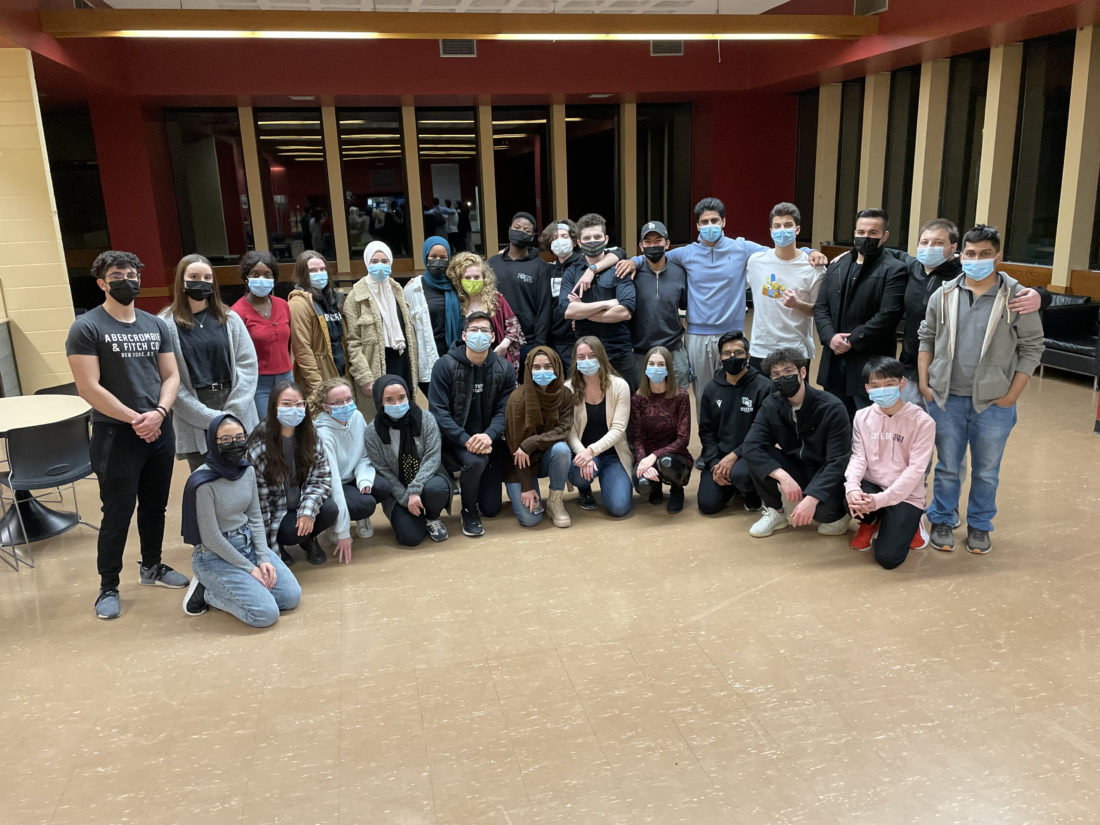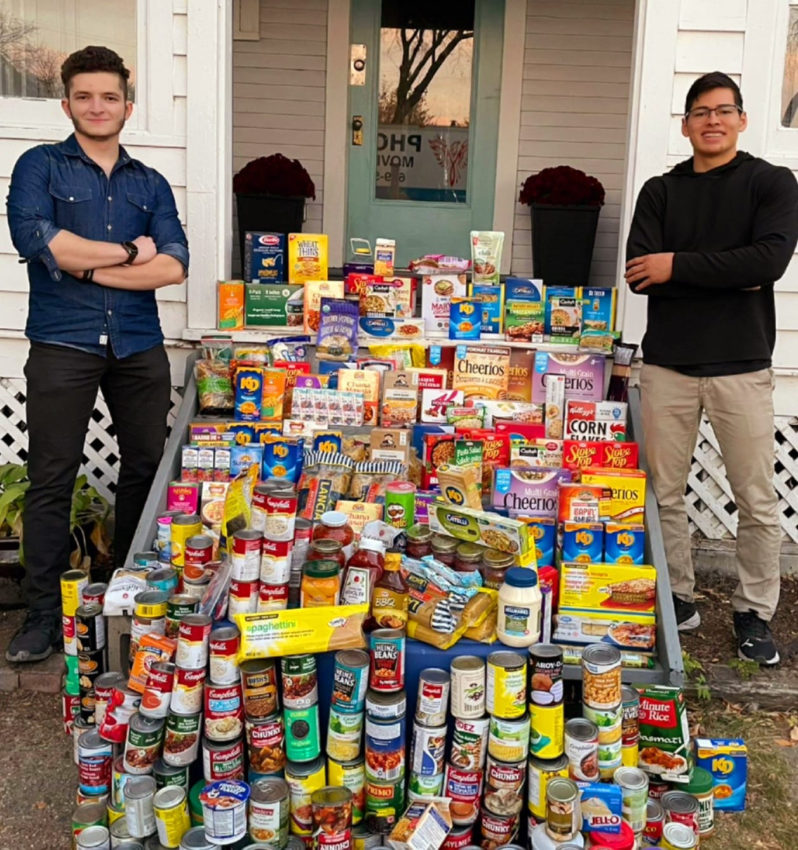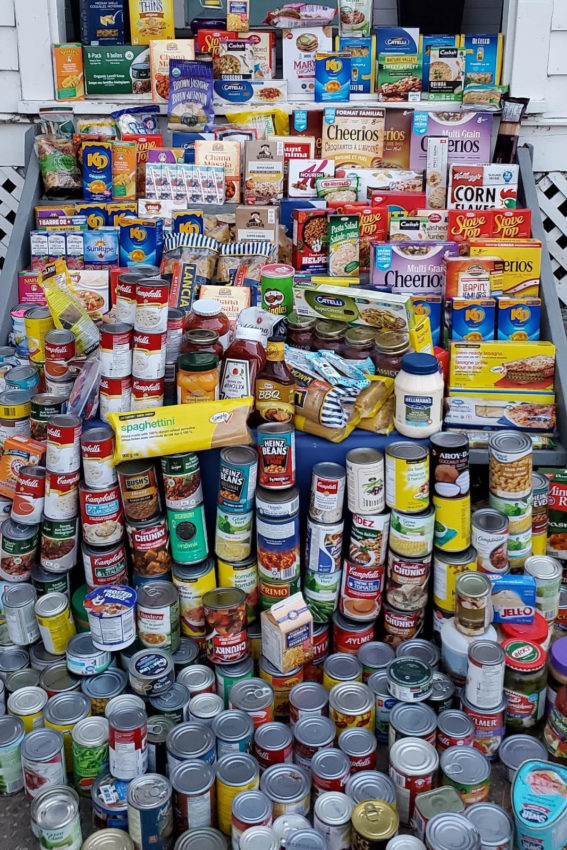
The University of Saskatchewan has a new group of students assembling to assist existing humanitarian organizations in Saskatoon.
The Amal Humanitarian Club provides students with the opportunity to develop leadership skills while giving back to their community. They hope to address issues related to mental health, food insecurity and Indigenous health and inequality.
The club was founded by third-year kinesiology students Abd Alfatah Alras and Alex Andres, the club’s president and vice-president, respectively. The club was ratified through the U of S Students’ Union last month.
In an interview with the Sheaf, Alras said he created the Amal Humanitarian Club out of his love for the community of Saskatoon and was inspired by the efforts of a similar club at a university his sister attended.
Alras, originally from Syria, has a multicultural background, having lived in Saudi Arabia and Ontario before settling in Saskatoon to study at the U of S.
“I have seen different cultures and different places and how they operate,” Alras said.
Having such a broad perspective of the world, Alras says that when he moved to Saskatoon, he noticed the community could be improved.
“I felt like there [were] things that I [could] offer to help … develop the community,” Alras said.
When Alras set out to establish the club, he wanted to ensure that it was meeting the needs of the community not already being met by existing humanitarian organizations in Saskatoon.
Founded only last month, the Amal Humanitarian Club already has more than 30 members, many of whom helped organize the club’s first event: a food drive for Thanksgiving.

According to the club, many students at the U of S are unaware of the prevalence of food insecurity in Saskatoon. That’s why they decided to raise awareness and collect food items for people who experience food insecurity, such as those who struggle to survive on a fixed income or people without homes.
“A lot of people consider Thanksgiving a time to reflect on what you have and what you can be thankful for, and it’s usually celebrated over food as well,” Andres said.
“As executives, we all considered that and then we said, ‘You know what? It would be a great decision to [host] a food drive to give back to the people … who could really benefit from something as simple as a warm meal.’”
The club was able to collect 640 pounds of food — more than enough to feed a family of five for a month — as well as raise $360 for the Saskatoon Food Bank and Learning Centre.

Andres says the COVID-19 pandemic further motivated him and Alras to create the club due to a lack of volunteer opportunities for students.
“What we’re looking to do is … give back to the community, make impactful change and also give volunteers opportunities to give back in meaningful ways, and during the COVID-19 pandemic, that was just completely cut out of everybody’s agenda.”
Despite the added difficulties associated with establishing a club during a pandemic, Andres says that it is all worth it.
“It’s a lot of extra work, but we’re really more than happy to do [it], just because we do feel like we’re doing something really good for the community.”
Alras and Andres hope that the club will continue their good work long after they graduate.
“We already have young folks in first year who are showing commitment to the club and are willing to keep the club going after we leave,” Alras said.
While the club may be focused on providing undergraduate students with volunteer opportunities, the club also recognizes the work being done by existing humanitarian organizations in Saskatoon.
“We’re hoping that we can work alongside other humanitarian clubs to do some really good work.”
“We wish to complement each other, not to compete,” Alras added.
Among the activities the club has planned for the year is a partnership with the Friendship Inn, through which members of the club will assist with serving food to those in need.
As a newly formed club, Andres says they are treating this year as a learning experience.
“With it being our first year, there are a lot of challenges, there are different events where we say, ‘Okay, maybe this isn’t going to be the best event. We’ll try this instead,” Andres said. “But overall, we’re really working hard to create good events every time.”
—
Jacob Philipchuk | Staff Writer
Photos: Supplied by Amal Humanitarian Club
Leave a Reply